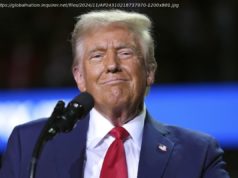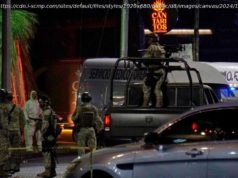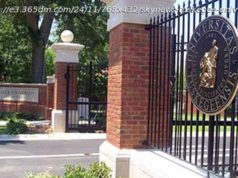Foreign Secretary Boris Johnson made the remarks just hours before the police in London said they were treating the death of another Russian expatriate as a murder.
LONDON — Foreign Secretary Boris Johnson of Britain said on Friday that it was “overwhelmingly likely” that President Vladimir V. Putin of Russia personally ordered the nerve agent attack against a former Russian spy this month.
Mr. Johnson’s remarks were a significant escalation in the dispute between London and Moscow, directly linking the Russian leader to the poisoning of Sergei V. Skripal and his daughter, Yulia, in the English city of Salisbury.
They came hours before Scotland Yard said it was treating the death of another Russian expatriate, who was a close associate of a prominent Putin critic, as a murder.
Until Friday, British officials had been careful to give the Kremlin a little room for deniability, saying that Russia had either directed the attack or allowed its chemical weapons to fall into the hands of unspecified rogue actors. That door may have been only slightly ajar, but Mr. Johnson appeared to shut it.
“Our quarrel is with Putin’s Kremlin and with his decision, and we think it overwhelmingly likely that it was his decision to direct the use of a nerve agent on the streets of the U. K., on the streets of Europe, for the first time since the Second World War,” Mr. Johnson said at a news conference. “That is why we’re at odds with Russia.”
Mr. Johnson has a history of going further in his statements than Prime Minister Theresa May and other cabinet ministers, and it was not immediately clear whether his comments represented a new official position for the government.
“We have repeatedly stated on various levels that Russia has nothing to do with that story,” Dmitry S. Peskov, the Kremlin spokesman, told the Tass news agency on Friday. “Any reference to, any mentioning of, our president in this context is nothing else but a shocking, unforgivable breach of diplomatic proprieties.”
Sergey V. Lavrov, the Russian foreign minister, indicated that his country would expel British diplomats — a move that was expected in response to Britain’s crackdown this week. But he declined to give a number.
“We will be fair,” he said, according to the Interfax news agency. “What would you do? This is elementary.”
Also on Friday, Britain’s Metropolitan Police said they were treating as a murder the death of Nikolai Glushkov, a former Russian business executive who was found dead in his home in London on Monday. The police said they made the change “following the results of a post mortem,” but did not elaborate.
A Russian court tried and convicted Mr. Glushkov in absentia last year on corruption charges, and he was an associate of the former Russian business oligarch Boris Berezovsky, an outspoken Putin critic who died in London in 2013.
The Skripals were poisoned on March 4 with a nerve agent known as a Novichok, a type of powerful chemical weapon developed by the Soviet Union in the 1970s and 1980s, and both remain in critical condition, according to British officials. The case, including the use of an exotic toxin, had echoes of the 2006 assassination of Alexander Litvinenko, another former Russian agent, who was fatally poisoned in London with a radioactive isotope.
An official inquiry concluded that Mr. Putin had himself most likely ordered the death of Mr. Litvinenko, a harsh critic of the Russian government. British officials have promised to re-examine the suspicious deaths of more than a dozen people in Britain who had run afoul of the Kremlin.
In Moscow, the Russian authorities said on Friday that they had opened a criminal case into the poisoning of Ms. Skripal, which was committed by “a generally dangerous method,” and the death of Mr. Glushkov.
“The investigation will be conducted in accordance with the Russian and international law,” the Investigative Committee of Russia, the equivalent to the F. B. I., said in a statement. “The investigators plan to engage highly-qualified experts and are also ready to work with the competent agencies in Britain.”
The attack on the Skripals has caused outrage in Britain and among its allies, pushing relations between London and Moscow to their lowest level since the Cold War.
Mrs. May said on Wednesday that Britain would expel “23 Russian diplomats who have been identified as undeclared intelligence officers,” take financial measures against Mr. Putin’s allies, and tighten controls on entry to the country by Russians suspected of wrongdoing.
Britain has sought to gather international condemnation against Russia over the poisoning, making its case to an array of international bodies, including the United Nations Security Council, and to several allies. On Thursday, the leaders of France, Germany and the United States joined Mrs. May in blaming Russia.
The following morning, Mrs. May spoke with her Australian counterpart, Malcolm Turnbull. Australia is a member of the “five eyes” intelligence-sharing alliance, along with Britain, Canada, New Zealand and the United States, so it may be privy to more sensitive information than other British allies.
Mr. Skripal, a former colonel in Russian military intelligence, was convicted in 2006 of selling secrets to British intelligence and imprisoned in Russia. In 2010, he was sent to Britain as part of a spy swap between Russia and the West.
He had lived quietly for years in Salisbury, and it is unclear what might have prompted an attempt — by the Kremlin or anyone else — to kill him.
British officials have said that their own scientists have identified the nerve agent, and the Organization for the Prohibition of Chemical Weapons, an independent agency, agreed on Friday to review that finding. The country’s closest allies have said they accept Britain’s conclusion and the likelihood of Russian involvement.
Experts say that Novichok agents are notable in that they can consist of two compounds that are not dangerous until they are combined, making the elements easy to transport and hard to detect.
Under a 1997 treaty, most of the world’s nations, including Russia, committed to destroying their chemical weapons stockpiles, except for very small amounts retained for research.






